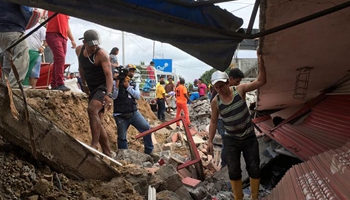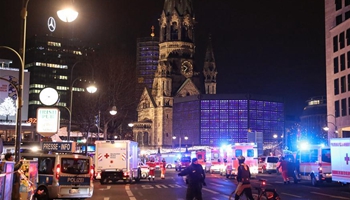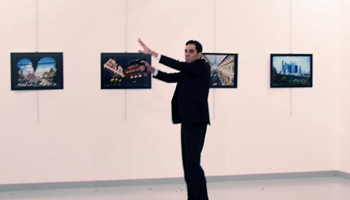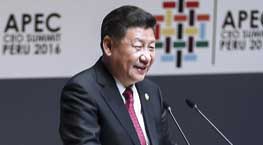MOSUL, Iraq, Dec. 19 (Xinhua) -- Iraqi security forces on Monday repelled an attack by Islamic State (IS) militants in the city of Mosul, killing nine IS militants and destroying three suicide car bombs, the Iraqi army said.
The soldiers of the 1st Division repelled three suicide car bombs and dozens of IS militants on the recently-freed neighborhood of al-Intisar in eastern Mosul after heavy clashes, killing nine militants and destroying all the suicide car bombs, a statement by the Iraqi Joint Operations Command said.
The Iraqi forces continued during the day their clearing operations in the freed neighborhoods in the eastern side of Mosul, locally known as the left bank of the Tigris which bisects the city.
After nearly seven weeks of street-to-street battles inside Mosul, the elite Counter-Terrorism Service retook control of 40 districts, while the army's 9th armored Division and the 1st Division recaptured six more neighborhoods in eastern the city, according to the statement.
The troops are facing grueling fighting inside Mosul from the extremist militants, who are carrying out brutal counter attacks in small groups moving quickly throughout the districts, and using suicide car bombs, as well as mortars and snipers, in addition to using the population of the city as human shields.
The United Nations High Commissioner for Refugees said in a recent report that 103,872 men, women, and children have fled their homes in Mosul and its adjacent districts since the beginning of military offensive in October to reclaim the IS largest stronghold in Iraq.
The number of displaced people in and near Mosul is rising everyday.
Iraqi Prime Minister Haider al-Abadi on Oct. 17 announced a major offensive to retake Mosul, the country's second largest city.
Since then, the Iraqi security forces, backed by international coalition forces, have inched to the eastern fringes of Mosul and made progress on other routes around the city.
Mosul, some 400 km north of the Iraqi capital of Baghdad, has been under the IS control since June 2014, when Iraqi government forces abandoned their weapons and fled, enabling IS militants to take control of parts of Iraq's northern and western regions.










